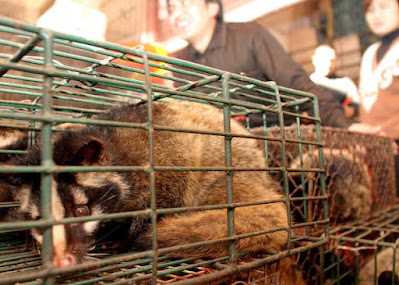we still haven’t learned the lessons from Sars
The Sars outbreak in 2002-2003 was the initially worldwide pandemic of the 21st century. There were 8,422 reported situations and 11% of those contaminated with the infection passed away. Its trigger was a recently determined coronavirus (a kind of infection that triggers breathing infections): Sars Co-V. Very early situations were connected to wild animals markets and dining establishments in Guangdong, China, where scientists discovered Sars-like coronaviruses in pets consisting of concealed hand civets and a racoon canine.
A Chinese federal government group consequently reported that 66 from 508 wild animals handlers evaluated in various other markets throughout Guangdong were favorable for antibodies to the Sars infection. The Chinese authorities reacted by enforcing a short-term prohibit on the searching, sale, transport and export of all wild pets in southerly China. They likewise quarantined or culled civets raised for human usage in the numerous civet ranches throughout the location.
We occurred to be functioning on wild animals profession and biodiversity preservation, consisting of unusual types of civets in adjoining Vietnam, and were conscious that numerous various types of pet were maintained shut to every various other.
My associates and I recommended that civets screening favorable for Sars might have additional infections instead being compared to the resource of the infection. They were most likely contaminated throughout the "rate dating" of zoonotic infections distributing amongst the jumble of various pet types loaded with each other at markets or while being transferred to markets, frequently in China.
At the Imperial Society's worldwide seminar on "Lessons from SARS" in 2004 and in the associated magazine, we emphasised that wild animals profession was a risk to human health and wellness and a main reason for biodiversity decrease in China and South-East Australia or europe.
However right below we are once once more, 17 years later on, with one more unique zoonotic coronavirus, this time around in Wuhan, China. Once more, preliminary human situations were connected to a market offering a range of online pets.
A continuously altering variety of types have been chosen as the offenders in the previous couple of days, consisting of bats and serpents, (the last outcomes were rapidly refuted), and also crickets and wolf cubs.
However, as yet, there's no clinical proof that the infection has been separated from any one of these, although a current record specified that "15 ecological specimens gathered in the western area (of the Huanan Fish and shellfish Wholesale Market) were favorable for 2019-nCoV infection with RT-PCR screening and hereditary sequencing evaluation." The record proceeds: "In spite of comprehensive browsing, no pet from the marketplace has so far been determined as a feasible resource of infection." Situs Judi Slot Online Banyak Jackpotnya
It's not apparent what "ecological specimens" describes right below and a total listing of those pets provide in, or offered from, the marketplace would certainly be suitable to launch along with information which and exactly just how a lot of these have up until now been evaluated.
Wild rats, which are frequently provide in these markets, ought to likewise have been gathered and evaluated as Sars-like coronaviruses have likewise been separated from wild rats in China.



